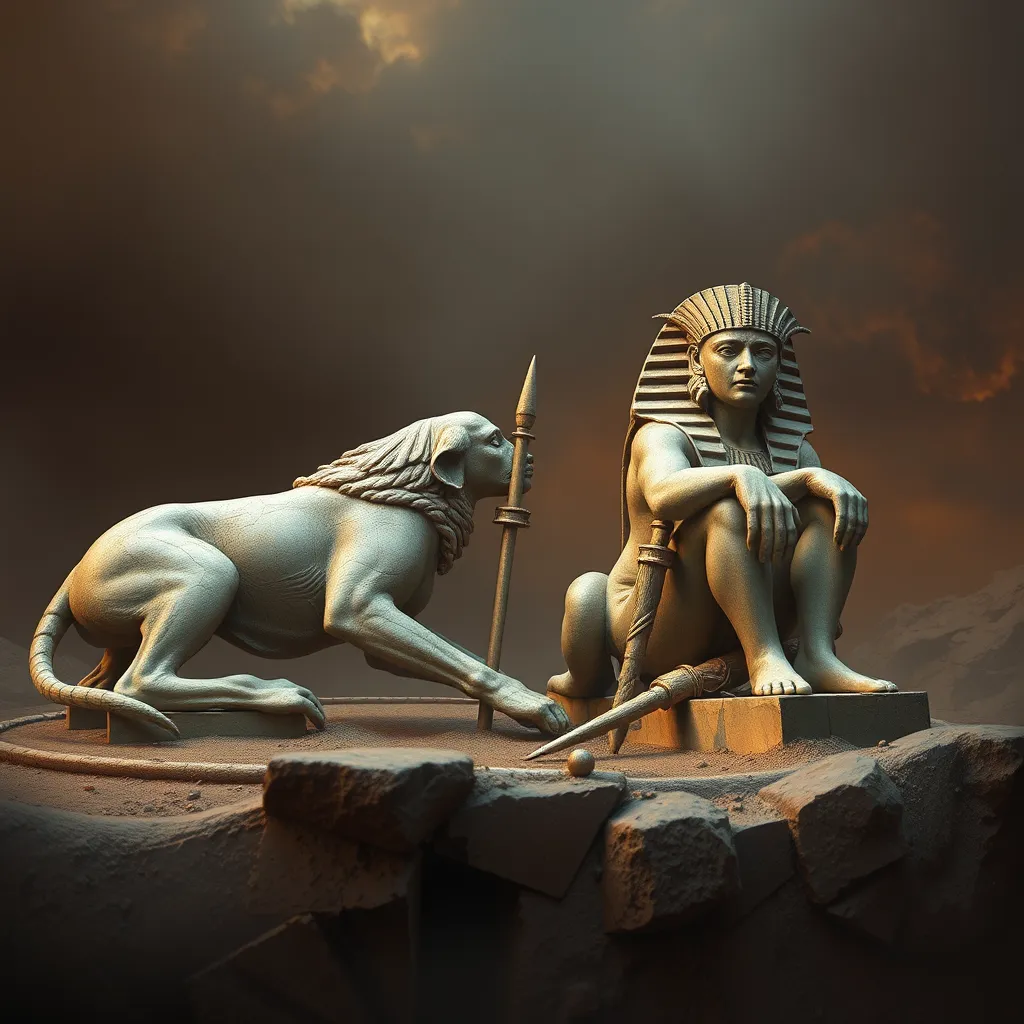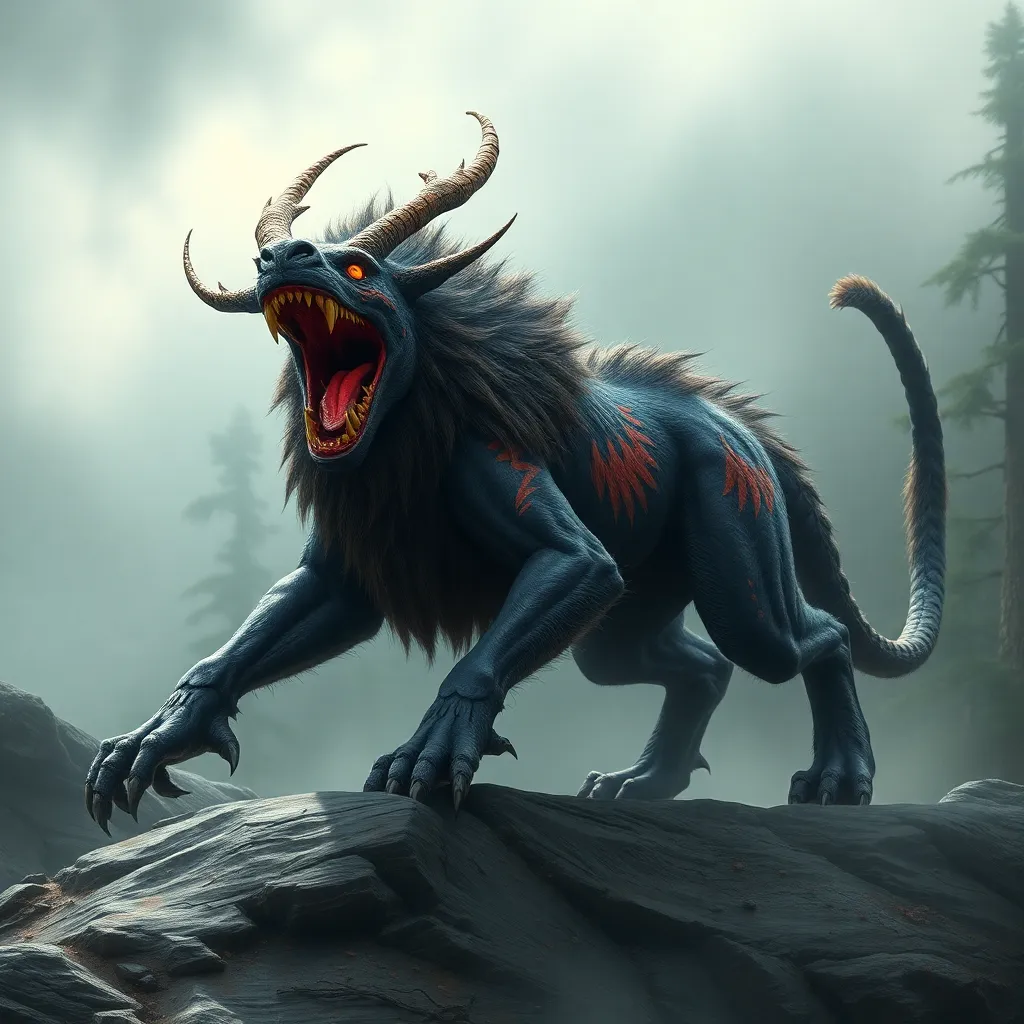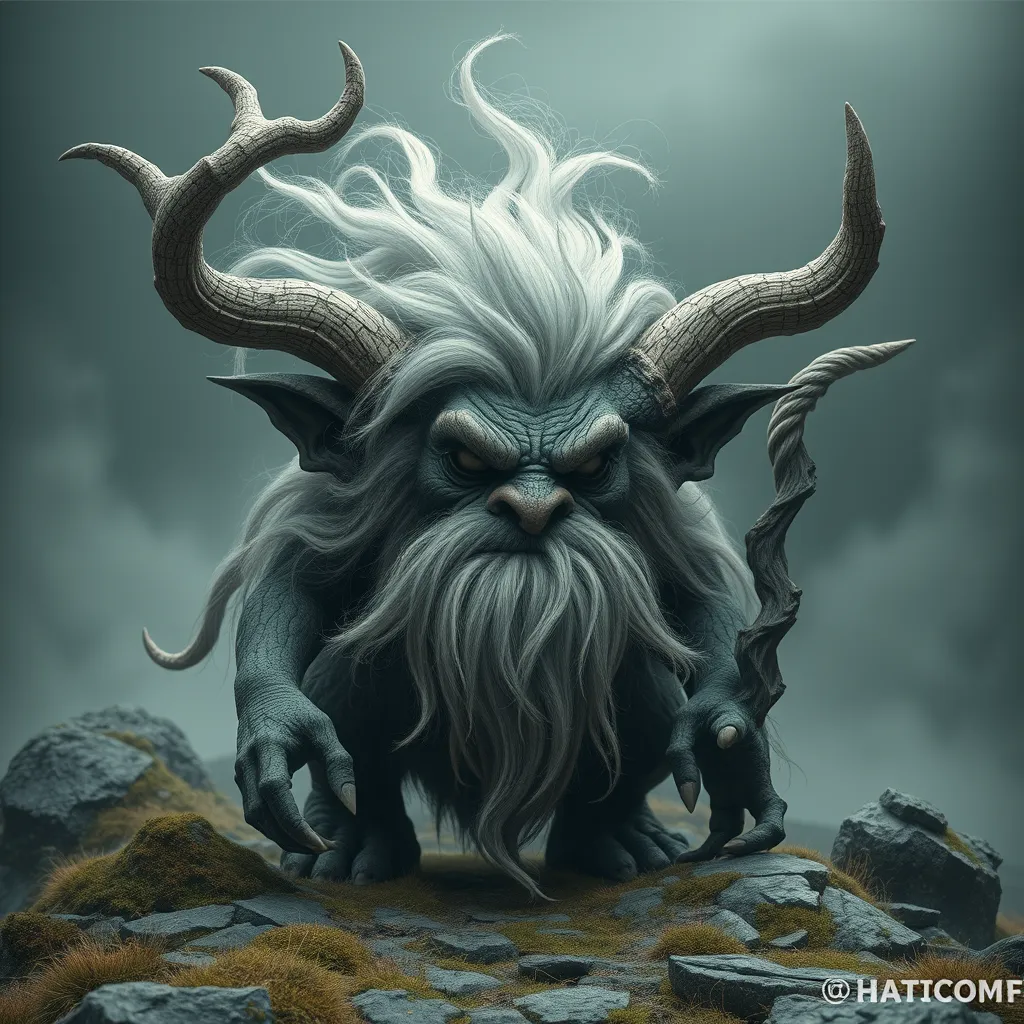Oedipus and the Sphinx: A Tale of Wit and Tragedy
I. Introduction
The tale of Oedipus and the Sphinx is one of the most compelling narratives in Greek mythology, illustrating the profound interplay of wit and tragedy. Oedipus, a figure marked by both remarkable intelligence and tragic fate, encounters the enigmatic Sphinx, a creature known for posing deadly riddles. This story serves as a powerful exploration of the human condition, where intellect and tragedy coexist in a delicate balance.
In Greek mythology, wit often plays a crucial role in overcoming challenges, yet it can also lead to tragic outcomes. This article aims to delve into the themes, characters, and the lasting impact of the Oedipus and the Sphinx tale, highlighting its significance in the broader context of Greek tragedy.
II. The Mythological Context: Oedipus in Greek Tragedy
Oedipus is a quintessential tragic hero whose story is steeped in themes of fate, free will, and human suffering. As a character, he embodies the complexity of human nature, facing insurmountable challenges while striving for truth and justice.
Greek tragedy often revolves around the struggles of its protagonists, who are typically noble figures doomed to suffer due to their flaws or circumstances. The conventions of this literary form include a focus on catharsis, moral lessons, and the exploration of existential themes.
In the context of Oedipus, the tension between fate and free will is paramount. Despite his attempts to avoid his prophesied destiny, Oedipus’s choices ultimately lead him to fulfill the very fate he seeks to escape.
III. The Sphinx: A Symbol of Riddles and Challenges
The Sphinx, a mythical creature with the body of a lion and the head of a woman, symbolizes the enigmatic nature of knowledge and the challenges that come with it. In mythology, the Sphinx is often associated with riddles that test the intellect and resolve of those who encounter her.
The Sphinx’s most famous riddle is:
- What walks on four legs in the morning, two legs at noon, and three legs in the evening?
This riddle reflects the stages of human life, illustrating the journey from infancy to old age. The implications of the riddle extend beyond a simple test of intelligence; it challenges individuals to confront the complexities of existence and the inevitability of change.
Furthermore, the Sphinx represents the duality of knowledge and ignorance. While she embodies wisdom through her riddles, she also serves as a barrier to enlightenment, as those who fail to answer her correctly face dire consequences.
IV. The Encounter: Oedipus vs. the Sphinx
The setting for Oedipus’s confrontation with the Sphinx is a pivotal moment in the myth. As Oedipus approaches Thebes, he encounters the Sphinx, who has been terrorizing the city by posing her deadly riddle to its inhabitants.
Faced with the Sphinx’s challenge, Oedipus demonstrates remarkable composure and intelligence. He contemplates the riddle deeply, ultimately providing the correct answer: Man. His response not only showcases his quick wit but also marks a significant turning point in his journey.
The significance of wit in this encounter cannot be overstated. Oedipus’s ability to solve the riddle is a testament to his intellect, setting him apart as a hero who can confront and overcome formidable obstacles.
V. Themes of Wit and Intelligence
Oedipus’s cleverness and strategic thinking are central to his character and the narrative’s progression. His ability to unravel the Sphinx’s riddle reflects a broader theme in Greek mythology, where intellect often serves as a means of survival.
The role of intellect is recurrent in many myths, where characters use their cunning to navigate challenges. Figures such as Odysseus, known for his wily nature, mirror Oedipus’s intelligence in their respective tales, emphasizing the value placed on wit in Greek culture.
VI. The Tragic Consequences of Oedipus’s Choices
While Oedipus’s encounter with the Sphinx highlights his intelligence, it also sets the stage for the tragic elements that follow. After solving the riddle, he is celebrated as a hero and becomes the king of Thebes. However, this newfound status leads to a series of catastrophic events.
The concept of hubris, or excessive pride, is intricately linked to Oedipus’s downfall. His confidence in his abilities blinds him to the warnings and signs of his impending fate. Eventually, he discovers the truth about his origins and the horrific actions he has unknowingly committed, leading to his tragic demise.
The intertwining of fate and personal choice is a central theme in Oedipus’s narrative. Despite his intelligence and noble intentions, his choices ultimately propel him towards his tragic destiny, illustrating the complexities of human existence.
VII. Legacy of Oedipus and the Sphinx in Literature and Culture
The tale of Oedipus and the Sphinx has had a profound influence on subsequent literary works and cultural interpretations. The themes of fate, intelligence, and tragedy resonate across various genres and mediums, from classical literature to modern adaptations.
In contemporary interpretations, Oedipus and the Sphinx continue to be explored in various forms, including:
- Literature: Modern retellings and adaptations in novels and plays.
- Film: Cinematic interpretations that delve into the psychological aspects of the characters.
- Philosophy: Discussions on fate, free will, and the nature of knowledge.
The enduring relevance of this tale speaks to the universal themes it encapsulates, prompting ongoing discussions about the human experience.
VIII. Conclusion
In summary, the tale of Oedipus and the Sphinx encapsulates key themes of wit, intelligence, and tragedy. Oedipus’s journey from a clever hero to a tragic figure serves as a poignant reminder of the complexities of fate and human choices. The interplay of these elements offers rich insights into Greek mythology and its reflections on the human condition.
As we reflect on this tale, we are invited to explore further the lessons embedded within Greek mythology, each story serving as a mirror to our own lives and choices.



